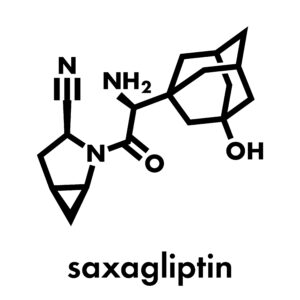Multi-district litigation over the diabetes drug saxagliptin, a case that combined more than 80 suits from around the country, has failed because the plaintiffs’ sole expert witness was unreliable and did not show a causal link between the medication and heart failure, a federal appeals court said this week.
A three-judge panel of the 6th U.S. Circuit Court of Appeals upheld the federal District Court for Eastern Kentucky, which in 2022 had dismissed the lawsuits brought by Leatha Taylor and dozens of others against Bristol-Myers Squibb Co., AstraZeneca Pharmaceuticals and two more firms.
The decision could have long-term implications for litigation that relies on expert witnesses, including medical malpractice and product liability insurance claims. It reinforces court decisions through the years that have made it clear that juries cannot decide matters of causation in complex medical matters without expert testimony.
After a Daubert hearing (as established by the 1993 federal court ruling that measures the credibility of expert witnesses), the lower court had excluded the views of Dr. Parag Goyal, a cardiology professor at Weill Cornell School of Medicine. Goyal said that saxagliptin, sold under the brand name Onglyza, “more likely than not … is capable of causing heart failure.”

But Goyal based his findings on a single study commissioned by the U.S. Food and Drug Administration, a 2013 examination known as SAVOR, for “Saxagliptin Assessment of Vascular Outcomes Recorded in Patients with Diabetes Mellitus.” The analysis found no statistical difference in rates of cardiovascular deaths or disease, or from strokes, or in hospitalization from related heart problems, for patients who took the drug compared with those that did not.
But it did find a 27% increase in hospitalization for heart failure for saxagliptin patients versus those who took a placebo. The study, though, cautioned that the increase should be considered in the context of other tests that may have resulted in false positives. It urged further investigation and that “a class effect should not be presumed,” the court explained, citing the published study.
Still, the SAVOR study sparked an alert from the FDA, which triggered many class-action lawsuits against the drug manufacturers, all around the country. Most of those suits were combined and assigned to the Eastern District of Kentucky in 2018.
“Dr. Goyal’s reliance on SAVOR, to the exclusion of all other studies involving human data, was unreliable,” 6th Circuit Judge John Nalbandian wrote in the Feb. 13 opinion. “As Dr. Goyal conceded, no clinical study beyond SAVOR has found a statistically significant association between saxagliptin and heart failure.”
The appeals court proceeded to pick apart Goyal’s expert report.
“Despite admitting that basing causation on a single study is improper, Dr. Goyal still found causation based only on SAVOR,” the court noted. “SAVOR is no smoking gun: the study only observed ‘higher incidence of hospitalization among patients treated with saxagliptin,’ not a causal link between the two.”
The judges said that Goyal’s testimony had reversed the normal burden of proof and had cited no other evidence, as required by long-established court rules. He “cherry-picked data to bolster his case,” and unreliably applied the so-called Bradford Hill criteria. Bradford Hill, an epidemiologist, in 1965 established nine factors that should be included in examining causation. Goyal’s report claimed that two of the factors, specificity and biological gradient, had been satisfied. But he later testified that they were not.
“These changes in Dr. Goyal’s Bradford Hill analysis—neither explained nor justified—cast doubt on the reliability of his testimony,” the appellate judges wrote.
The lower court judge, Karen Caldwell, had correctly dismissed the lawsuits and did not err when she declined to allow the plaintiffs more time to find a second expert. That would have prejudiced and burdened the drug-maker defendants, requiring a new round of discovery, depositions, motions, hearings and years of delays, the opinion reads.
The plaintiffs, led by Kentucky injury lawyer Ashton Rose Smith, also argued that the case should be allowed to proceed, allowing a jury to decide the matter even without the expert’s testimony. But the appeals court did some research and found that no court in any state has ever allowed that.
“Other district courts have agreed that all jurisdictions require expert testimony to show general causation, ‘at least where the issues are medically complex and outside common knowledge and lay experience,'” the 6th Circuit judges wrote, citing 2017 and 2019 federal court rulings.
The pharmaceutical companies were represented in the appeal by Paul Schmidt of the Covington & Burling law firm, based in New York and Washington, D.C. He could not be reached for comment Wednesday.
Bristol-Myers Squibb company officials referred inquiries to AstraZeneca, which now owns Onglyza. AstraZeneca representatives could not be reached Wednesday.
Was this article valuable?
Here are more articles you may enjoy.



 Florida’s Commercial Clearinghouse Bill Stirring Up Concerns for Brokers, Regulators
Florida’s Commercial Clearinghouse Bill Stirring Up Concerns for Brokers, Regulators  Q4 Global Commercial Insurance Rates Drop 4%, in 6th Quarterly Decline: Marsh
Q4 Global Commercial Insurance Rates Drop 4%, in 6th Quarterly Decline: Marsh  Trump’s Repeal of Climate Rule Opens a ‘New Front’ for Litigation
Trump’s Repeal of Climate Rule Opens a ‘New Front’ for Litigation  Trump Demands $1 Billion From Harvard as Prolonged Standoff Appears to Deepen
Trump Demands $1 Billion From Harvard as Prolonged Standoff Appears to Deepen 


